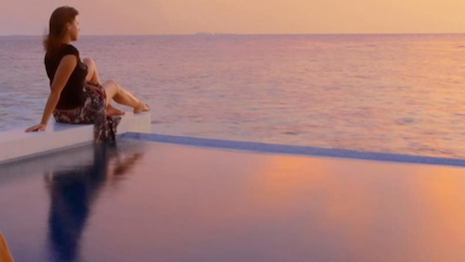- About
- Subscribe Now
- New York,
December 18, 2017

 Younger consumers tend favor experiences over things. Image credit: Luxury Institute
Younger consumers tend favor experiences over things. Image credit: Luxury Institute
While 2017 was a solid year for luxury, 2018 is projected to see slight increases to total spending, with most of the growth coming from travel-related purchases.
This data comes from Luxury Institute’s annual study on the state of the luxury business, which surveyed thousands of affluent customers from the wealthiest nations in the world. The data supports the growing understanding that luxury consumers are beginning to value experiences over products.
"Travel has gone from an infrequent luxury to a necessary experience as people shift their spending from goods to experience-based services," said Milton Pedraza, CEO of Luxury Institute, New York. "As consumers discover the world online, and so many people migrate and immigrate travel has become indispensable for business and leisure.
"The low cost of travel, and its numerous options have helped create an affordable virtuous cycle of demand and supply," he said.
Experiential luxury
Research over the past few years into the different shopping habits of luxury consumers, particularly among younger generations, has pointed to to one fact: young consumers typically value experiences over objects.
This idea is supported in Luxury Institute’s new data, which shows that sectors related to travel, such as hotels, airlines and cruises, will all see a jump in spending in 2018.
Out of the 4,300 affluent consumers surveyed for the report, 28 percent are planning on increasing their luxury spending in the next year, a slight bump up from the predictions for this year that were made at the end of 2016.
Exterior of The Ritz-Carlton Hotel de la Paix, Geneva. Image credit: Ritz-Carlton
The categories that will see the most increase in spending are, in order: hotels with 41 percent; airlines with 40 percent; cruises with 38 percent and tours with with 37 percent. Additional categories such as dining, fitness and entertainment come in behind the top four segments of the travel sector.
These figures support the idea that experiences, not objects, will be key luxury spending drivers in 2018.
The other notable trend was the increased embrace of online shopping among luxury shoppers. Twenty-one percent of shoppers prefer to buy online, up from 17 percent last year, while almost 40 percent of all luxury spending happens online.
Digital growth
With travel being one of the top anticipated sectors for luxury spending next year, travel brands will have to make the most of the increased attention.
The Ritz-Carlton came out on top in a global survey of luxury hotel experiences from affluent travelers in seven countries.
The rankings come from the Luxury Institute, which surveyed almost 4,000 different consumers in the top 10 percent income bracket in their respective countries. The Ritz-Carlton scored higher than any other hotel brand in terms of superior quality, customer service and unique experience (see story).
But even smaller hotels will benefit from the increased travel spend next year.
SLH's Le Pavillon in Paris creates a custom reading list for visitors. Image credit: Small Luxury Hotels of the World
According to the Small Luxury Hotels of the World, boutique hotels should be prepared to cater to individual needs in the year ahead as unique requests continue to rise.
Small Luxury Hotels of the World (SLH), in part with Trendwatching, has comprised a series of trends in the independent hotel industry set to take hold in 2018, which includes an uprising of on-site literature as affluent travelers look to detox from digital devices. Next year consumers will expect more of a hands-on experience in which they can design their entire trip, catered to their individual needs (see story).
As experiences and online shopping dominate in 2018, luxury brands will have to adjust their strategies accordingly in order to capitalize.
"The world economy is the healthiest it has been since 2008," Luxury Institute's Mr. Pedraza said. "Employment is healthy throughout the world and wages are picking up slightly.
"Real estate is healthy. The global stock market is up with the United States at record levels, and that favors affluent spending," he said.
Share your thoughts. Click here